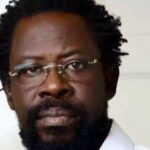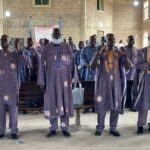The consolidation scenario I projected, following the judgment of the Supreme Court in favour of Tinubu’s presidential election, is turning out to be more brutal than I thought. But again, we must reflect and ask whether keeping quiet is a choice.
The appeal of the Kano Gubernatorial Election Tribunal is one daring example where the Appeal Court announced a judgement in favour of APC, but then went on to contradict itself in the written judgment in Certified True Copy. The pointers show this is part of the consolidation process of the ruling party, as the APC chairman is from Kano. Delivering judgments for APC means appeasing the party chairman’s support base, and this explains why the police have banned protests in the state.
Of course, the discontent is not isolated to Kano alone. The consolidation process saw the ruling party favoured by the elite judges as they affirmed Uba Sani as Kaduna state governor following Isa Ashiru’s appeal, where the tribunal deemed the election inconclusive and ordered a supplementary election in four local governments. The judgment happened a few days after the court had sacked Zamfara State governor, declared the election as inconclusive, and ordered a rerun in three local government areas.
Similarly, the elite judges went on to sack Caleb Mutfwang as governor of Plateau State, and the APC now occupies all 22 seats at the state Assembly following the sacking of the PDP lawmakers. The discontent with these judgments has led to protests and the heightening of security alert.
How I self-published my poetry book while studying — Nile varsity student, Aisha
Leadership crisis rocks Bauchi Assembly as court sacks speaker, deputy
One would think someone would take responsibility for the inconsistent and lamentable performances of these elite judges at various tribunals due to public outcry. Without cultural refinement, the Chief Justice of Nigeria, Ariwoola, was unapologetic about it. On Monday, he went on to prompt the judges to remain adamant and should not be overwhelmed by the mob—a derogatory word used against law-abiding citizens holding the system to account. One will not be wrong to classify Monday’s speech as part of post-truth politics by our elite judges.
When the APC controls these states from the North, combined with the existing ones they control, it means there will be little or no opposition party across the country. After all, the leader of the PDP Governor’s Forum is already dining with the APC, and one cannot help but link this to his victory at the courts. Worryingly, a key NNPP lawmaker has declared that the party is open to merging with the APC. A one-party country will be the outcome when the consolidation process is completed. The incumbent will be eliminating all sorts of political competition and concentration of power in one party, meaning limiting accountability, transparency and potential abuses of power.
On the contrary, the general public dislikes a one-party state, and that is why they are against the consolidation of power by the APC at all costs. The public has limited power to stop this act of impunity and has realised that the judicial system does not fear consequences. But what is obvious now is that the judiciary surely fears media attention, hence why the government is trying to get the public to be silenced.
The instances of banning protests are just one of the many ways to silence the public. There are cases of demolition of houses in Lagos, which predominantly belong to non-indigenes. It is not a coincidence that these same non-indigenes have been the most vocal group of people on social media, and the government dislikes the negative media portrayal they are getting from them. The five-year suspension of the Law Department to admit students at Baze University is another case of trying to silence the public. The proprietor, a former vice-presidential candidate, has been vocal against this government and speaks the mind of the average citizen. Their position to hold the system accountable is notable.
This style of oppression only happens in countries where oppression is rampant. For instance, in the UK, the sacking of the Home Secretary, an equivalent of Minister of Interior, Suella Braverman, highlighted the tensions between government authority and the right to peaceful protest. Braverman faced dismissal after defying the Prime Minister and criticising the Metropolitan Police for alleged bias, suggesting they are supporting a pro-Palestine march in London. This incident shows upholding the fundamental right to protest is vital for democracy.
Similarly, the political affiliations of elite judges in Nigeria raise questions about their role in safeguarding democratic freedoms, including the right to opposition and protest. In an era where emotional and biased narratives often overshadow factual accuracy, the goal of consolidating the ruling party is more important than applying the rule of law. The judiciary’s drift towards political partisanship reflects a broader systemic issue where truth and justice are secondary to political expediency.
Nonetheless, does that mean that we should keep quiet? Silence may be a safe option, but impunity is like cancer; when allowed to keep growing, it will affect the whole system. As the saying goes, what goes around comes around.
 Join Daily Trust WhatsApp Community For Quick Access To News and Happenings Around You.
Join Daily Trust WhatsApp Community For Quick Access To News and Happenings Around You.


